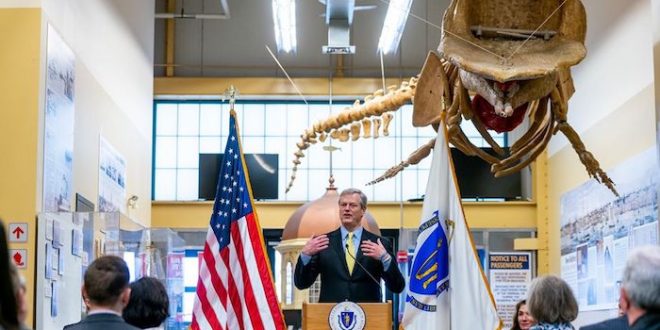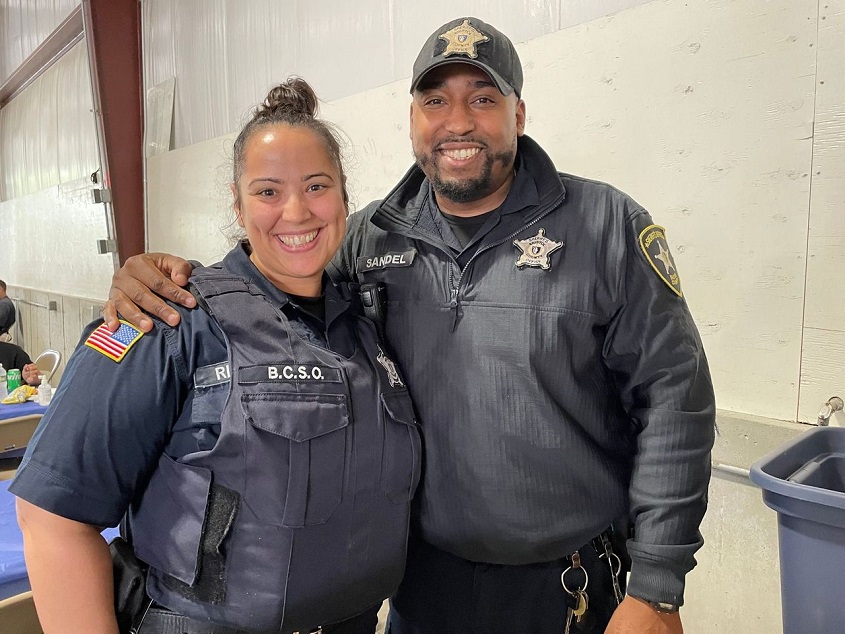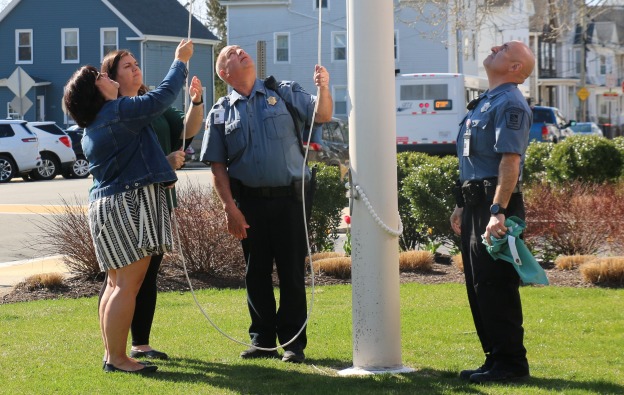Michael P. Norton and Matt Murphy of State House News Service
If they are able to build on their new momentum, Massachusetts lawmakers mounting a push to enable undocumented immigrants to access driver’s licenses face an obstacle in Governor Charlie Baker.
Baker was asked Monday afternoon whether he was for or against the legislation, which advanced from the Transportation Committee on Wednesday.
“We tend not to comment on legislation that’s currently pending before the branch because it depends in many respects on what the details have to say but generally speaking we think the bar on this one’s pretty high,” Baker said.
By “pretty high,” Baker might have been subtly referencing his position on the bill during his 2014 campaign for governor, or previewing what he would say Thursday, when he told reporters in Brookline: “Well I’ve said for many years that I think it’s really hard to build the kind of safeguards into that kind of process that would create the kind of security that would be hard to live up to some of the federal and state standards with respect to security and identification. And for those reasons, I don’t support that legislation.”
In 2014, during a WGBH-Boston Globe debate with Democratic gubernatorial nominee Martha Coakley. Baker said, “I don’t support driver’s licenses for people who are undocumented. And the main reason for that is no one’s ever been able to explain to me how you can actually document and verify someone who is undocumented.”
As the governor reiterates his concerns about documentation, the Senate chair of the Transportation Committee told the News Service this week that efforts were made in crafting the bill to address that issue.
Sen. Joseph Boncore, a Winthrop Democrat, said advocates who support the bill should feel optimistic about the legislation moving out of committee.
“This is as far as this bill has ever gotten. There’s still work to be done on it, though. And we’re committed to working on it in the Senate,” Boncore told the News Service.
The Winthrop Democrat said that in order to build the support on the committee needed to advance it favorably, the original legislation filed by Sen. Brendan Crighton needed to more specifically spell out how the state would verify an applicant’s identity.
“The changes that were made, we were more prescriptive on what forms of ID persons would have to provide to the registry. That was the main thing,” Boncore said.
The original legislation stated that if a person was unable to provide a Social Security card or prove their lawful residence in Massachusetts they could apply for a basic state driver’s license, provided that they show “satisfactory proof” of their identity, date-of-birth and residence.
The bill reported out by the committee on Wednesday specifically requires two forms of identification, including at least one with a photograph and one with a date-of-birth.
One form of identification that applicants would be required to provide would be either a valid foreign passport or a consular identification document.
The second form of ID could be any of the following: a valid driver’s license from another state or territory, a Massachusetts identification card, an original birth certificate or a valid employment authorization document issued by U.S.Citizenship and Immigration Services.
To overcome a veto of any bill, a two thirds vote is required in both branches. There are 125 Democrats in the House, 31 Republicans and one independent. In the Senate, there are 34 Democrats and four Republicans. While Democrats are more likely than Republicans to support the bill, it’s possible that members of either party could cross party lines and vote for or against it, should the measure even reach a floor vote.
The committee vote could have been one way to provide insight into current legislative thinking on the issue, but Boncore’s office declined to provide a breakdown of how the panel’s 20 members voted on the license bill, or the raw totals, as some committees will.
The committee referred its bill to the Senate, where Senate President Karen Spilka has voiced support for the thrust of the legislation.
During her 2014 debate with Baker, Coakley, the former attorney general, said she wasn’t sure exactly how to address the issue, but added, “We have to address this for people in Massachusetts who are in our communities and make sure that we address it as a public safety issue.”
Coakley added, “There are a lot of people who have been here for a long time. They can’t get to work. They can’t get to a medical emergency if they don’t have licenses.”
During the debate, Baker said, “I get the fact that for many people this is a burden and an inconvenience and I understand that and I’ve talked to a lot of them about it. But fundamentally we need Washington to deal with this question and to solve this immigration problem so that we at the state and local level can figure out how to deal with it.”
Baker said that as governor, he would try to create a coalition of governors, mayors and local officials to make the case to the federal government that the negative impacts of a “broken immigration system” are most acute at the local level.
“The folks in Washington for the most part treat immigration like a football and I think for both sides in many cases it works not to fix it,” Baker said. “And that’s a problem and we need to create a coalition – bipartisan – and get after them on this one.”
Coakley responded, “I wish they treated it like a football. They’re not doing anything about it. They’re not even handling it.”
A Baker administration spokesman declined to say whether Baker had created the coalition he spoke about on the campaign in 2014, but said Baker had worked “across the aisle” and with colleagues from other states to urge action on immigration policies.
Baker wrote three letters to federal government officials in 2017 outlining some of his preferences for the direction of various immigration policies, including a February 2017 letter to former Homeland Security Secretary John Kelly as the Trump administration was getting set up in Washington.
 New Bedford Guide Your Guide to New Bedford and South Coast, MA
New Bedford Guide Your Guide to New Bedford and South Coast, MA









